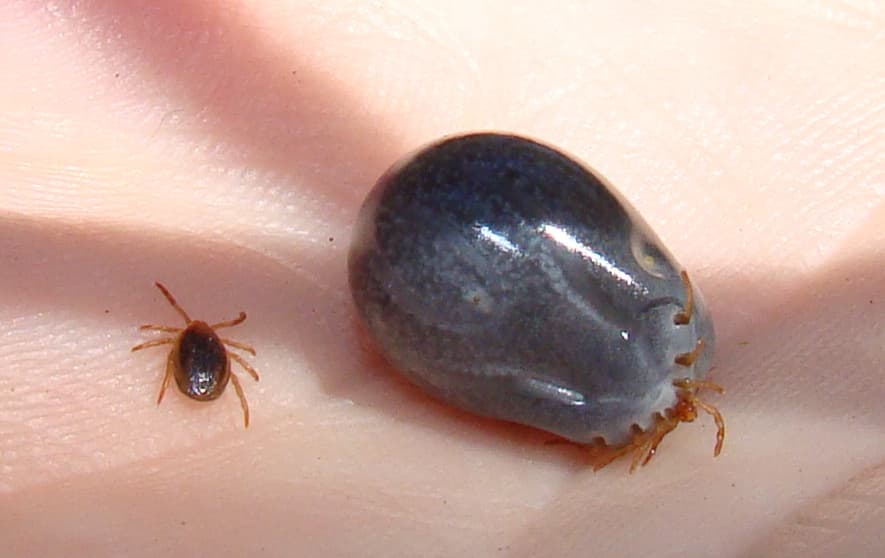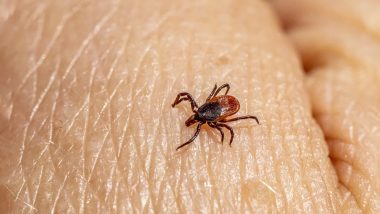An Australian woman from Queensland’s Sunshine Coast was left with a paralysed face after an unfortunate tick attack. The woman Olivia Pozzan, a vet with Royal Society for the Prevention of Cruelty to Animals, recollects waking up with an intense earache, which she thought was caused by her sinusitis. The pain settled after she took anti-inflammatory medicines but the side of her face with the aching ear appeared swollen.
She returned to work after the pain seemed to subside. But a week later, she woke up with vomiting, vertigo and facial paralysis. The right side of her face had frozen and she couldn’t seem to close her right eye. Olivia also grew extremely sensitive to light and sound. That’s when she realised that something was seriously wrong.
She consulted the doctors at Sunshine Coast University Hospital who ruled out a variety of illnesses. Her right canal was examined but the wax build-up obscured anything within. Five-Year-Old Girl Paralysed By A Tick Bite, Mother Discovers Blood-Sucking Insect On The Child's Scalp.
But twelve days after her first earache, the doctors discovered the problem. A tick had lodged itself inside her right ear and was feeding on her blood. By the time the doctors discovered it, the tick had swollen up and was over a centimetre long.
The blood-engorged tick, whom the doctors named Steve, was about 200-600 times bigger than a normal, unfed tick. The doctor then injected her ear with a solution to kill Steve and then extracted it. Olivia’s condition steadily improved afterwards.
What is Tick Paralysis?
Ticks are small parasitic insects that latch on to the body of animals, sucking their blood. Unlike other bugs, they don’t fly or jump. They reach out to the hosts and burrow into their bodies.

The saliva of the tick is a neurotoxin, which causes paralysis in the person bitten. There are over 40 species of ticks whose saliva contains the paralysing toxin.
A simple removal of the tick with forceps or chemicals constitutes the best treatment. By placing the forceps close to the skin, the tick should be extracted completely, including its mouthparts. The tick’s mouth is still embedded into the skin, it will continue to cause paralysis.
If recognised early and treated properly, the paralysis can be reversed. But it is left untreated, the tick bite can lead to respiratory failure and death.
If you live in a tick-prone area or if you handle animals on a daily basis, you may be at risk. To prevent tick bites, keep the generally exposed areas of your body, like your extremities covered with cloth. Wear long-sleeved shirts, closed shoes and long pants while walking outdoors. Treating clothes with insecticides and tick repellents can improve protection.
(The above story first appeared on LatestLY on Oct 31, 2018 01:21 PM IST. For more news and updates on politics, world, sports, entertainment and lifestyle, log on to our website latestly.com).













 Quickly
Quickly





















